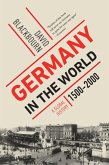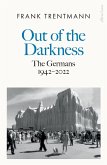This text delivers the first comprehensive study of youth antifascism in the GDR, extending scholarship beyond the level of the state to consider the everyday contributions of local institutions and youth mentors responsible for conveying stories and commemorative practices to generations born during WWII and after the defeat of fascism. While the government sought to use educators and former resistance fighters as ideological shock troops, it could not completely dictate how these stories would be told, with memory intermediaries altering at times the narrative and message. Using a variety of primary sources including oral history interviews, the author also assesses how students viewed antifascism, with reactions ranging from strong identification to indifference and dissent. Antifascist education and commemoration were never simply state-prescribed and were not as "participation-less" as some scholars and contemporary observers claim, even as educators fought a losing battle to maintain enthusiasm.
Dieser Download kann aus rechtlichen Gründen nur mit Rechnungsadresse in A, B, BG, CY, CZ, D, DK, EW, E, FIN, F, GR, HR, H, IRL, I, LT, L, LR, M, NL, PL, P, R, S, SLO, SK ausgeliefert werden.
"...this book is undoubtedly a significant contribution to the scholarship of East Germany, and will also provide valuable insights for scholars with an interest in antifascism during the Cold War and in education, particularly in relation to state-building." - Grit Wesser, University of Edinburgh









